The percentage of students achieving proficiency in math is <50% (which is lower than the Minnesota state average of 65%).
Quick Stats (2025)
- School Type: Alternative school
- Grades: 9-12
- Graduation Rate: <50%
- Math Proficiency: <50%
- Source: National Center for Education Statistics (NCES), MN Dept. of Education
School Overview
School Type
Grades Offered
Grades 9-12
Total Students (19-20)
18 students
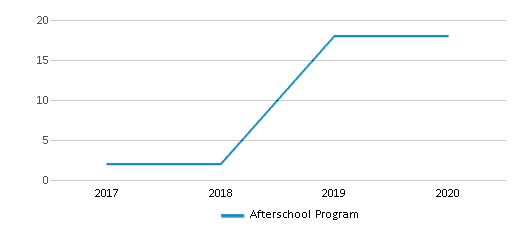
Total Classroom Teachers
n/a
School Rankings
Math Test Scores (% Proficient)
(09-10)<50%
65%
Student : Teacher Ratio
n/a
13:1
American Indian
(19-20)11%
2%
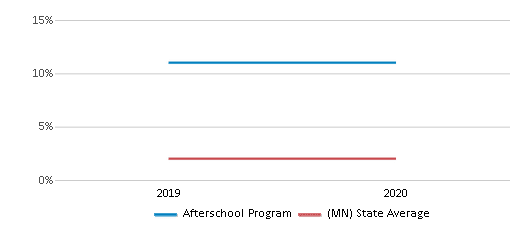
Asian
(19-20)n/a
7%
Hispanic
(19-20)6%
9%
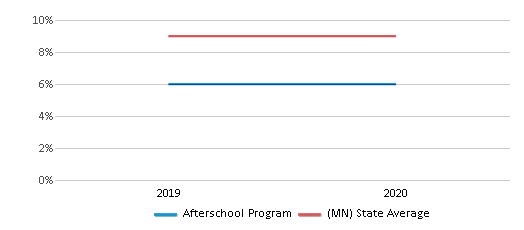
Black
(19-20)n/a
11%
White
(19-20)78%
66%
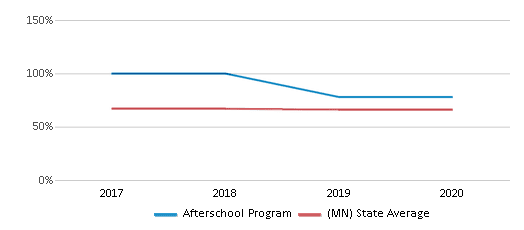
Hawaiian
(19-20)n/a
n/a
Two or more races
(19-20)5%
5%
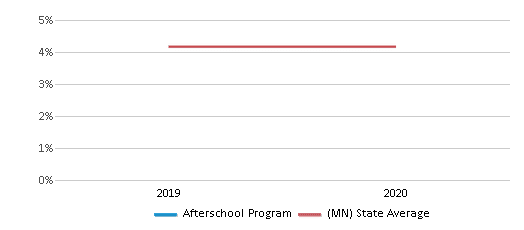
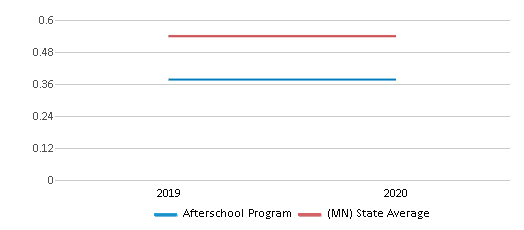
Graduation Rate
(18-19)<50%
84%
Eligible for Free Lunch (19-20)
44%
28%
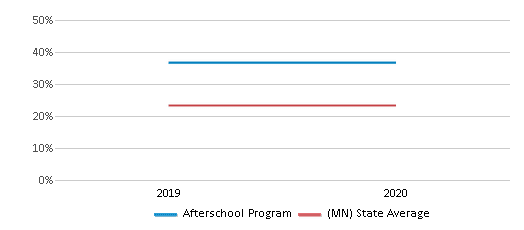
Eligible for Reduced Lunch (19-20)
22%
8%
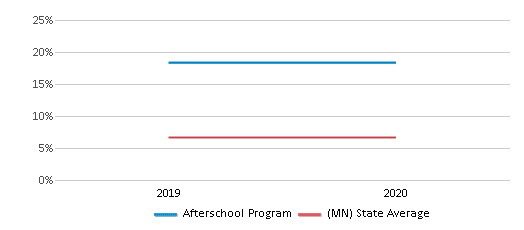
School Statewide Testing
School District Name
Source: National Center for Education Statistics (NCES), MN Dept. of Education
Profile last updated: 02/09/2025
Frequently Asked Questions
What is the graduation rate of Afterschool Program?
The graduation rate of Afterschool Program is 50%, which is lower than the Minnesota state average of 84%.
How many students attend Afterschool Program?
18 students attend Afterschool Program.
What is the racial composition of the student body?
78% of Afterschool Program students are White, 11% of students are American Indian, 6% of students are Hispanic, and 5% of students are Two or more races.
What grades does Afterschool Program offer ?
Afterschool Program offers enrollment in grades 9-12
What school district is Afterschool Program part of?
Afterschool Program is part of Detroit Lakes Public School District.
School Reviews
Review Afterschool Program. Reviews should be a few sentences in length. Please include any comments on:
- Quality of academic programs, teachers, and facilities
- Availability of music, art, sports and other extracurricular activities
Recent Articles

Sexual Harassment at Age 6: The Tale of a First Grade Suspension
A six-year old in Aurora, Colorado, was suspended after singing an LMFAO song to a little girl in his class and reportedly “shaking his booty.” We look at the case and the sexual harassment problem in public schools today.

How Scaffolding Could Change the Way Your Child Learns
This article explores the concept of instructional scaffolding, a teaching method that enhances learning by breaking down complex tasks into manageable parts. It highlights how scaffolding supports students in developing critical thinking skills and becoming more independent learners. The article discusses the benefits of scaffolding, including improved engagement and reduced anxiety, and provides strategies for its implementation across various educational levels.

February 05, 2025
Understanding the U.S. Department of Education: Structure, Impact, and EvolutionWe explore how the Department of Education shapes American education, from its cabinet-level leadership to its impact on millions of students, written for general audiences seeking clarity on this vital institution.









